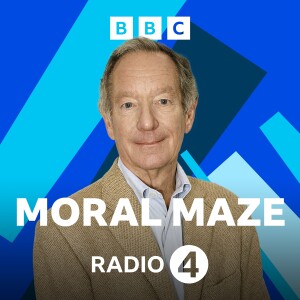
It’s exactly 30 years since the fall of the Berlin Wall. The dramatic demolition on that chilly November night in 1989 symbolised liberal aspirations for a world soon to be remade in the image of America and Western Europe. For the political theorist Francis Fukuyama it was ‘The End of History’ and a decisive victory for the global democratic project. But history didn’t end in 1989 and understanding the reasons for that is perhaps the moral imperative of our age. Democracies are shaking, America is polarised, Russia is meddling with Western elections, China is crushing democratic protests in Hong Kong; then there’s 9/11 and its aftermath of Islamist terror. Where has it all gone wrong? Some see it as a moral failing on the part of the West that it did not seize its moment of triumph. Others believe the West was arrogant in expecting the nations of Eastern Europe and the Middle East to adopt its version of capitalist democracy. What are the lessons? The capitalist and communist ideologies may not be as entrenched as they were during the height of the Cold War but neither have they gone away. Today it’s fashionable to argue that only a resurgence of international socialism will keep the ‘evils’ of global capitalism in check. Others think that totalitarianism never died – it merely morphed into a new kind of political and moral orthodoxy that now dominates our institutions. Where do we go from here? Should each nation be left to work out its own destiny, or do we need a new global project?
Producer: Dan Tierney.
view more
More Episodes
The morality of parental rights
 2017-07-13
2017-07-13
 67
67
 2017-07-13
2017-07-13
 67
67
The Morality of the Public Sector
 2017-07-06
2017-07-06
 55
55
 2017-07-06
2017-07-06
 55
55
Moral Philosophy for the Internet
 2017-06-29
2017-06-29
 94
94
 2017-06-29
2017-06-29
 94
94
Grenfell Tower Fire
 2017-06-22
2017-06-22
 71
71
 2017-06-22
2017-06-22
 71
71
The morality of generational voting
 2017-06-15
2017-06-15
 40
40
 2017-06-15
2017-06-15
 40
40
Morality of the Green Belt
 2017-03-29
2017-03-29
 15
15
 2017-03-29
2017-03-29
 15
15
Nationalism
 2017-03-23
2017-03-23
 54
54
 2017-03-23
2017-03-23
 54
54
Meritocracy Of Grammar Schools
 2017-03-16
2017-03-16
 18
18
 2017-03-16
2017-03-16
 18
18
Virtue Signalling
 2017-03-09
2017-03-09
 51
51
 2017-03-09
2017-03-09
 51
51
Morality of Loyalty
 2017-03-02
2017-03-02
 32
32
 2017-03-02
2017-03-02
 32
32
The Morality of Fake News
 2017-02-23
2017-02-23
 22
22
 2017-02-23
2017-02-23
 22
22
The Morality of Empathy
 2017-02-16
2017-02-16
 49
49
 2017-02-16
2017-02-16
 49
49
Peace, Justice and Morality
 2017-02-09
2017-02-09
 19
19
 2017-02-09
2017-02-09
 19
19
Morality of international trade
 2017-02-02
2017-02-02
 18
18
 2017-02-02
2017-02-02
 18
18
The Psychology of Morality
 2016-11-25
2016-11-25
 20
20
 2016-11-25
2016-11-25
 20
20
Social Integration
 2016-11-17
2016-11-17
 25
25
 2016-11-17
2016-11-17
 25
25
Political Discourse
 2016-11-10
2016-11-10
 16
16
 2016-11-10
2016-11-10
 16
16
US Presidential Election
 2016-11-03
2016-11-03
 22
22
 2016-11-03
2016-11-03
 22
22
Moral imagination and migration
 2016-10-27
2016-10-27
 2016-10-27
2016-10-27
Authors of Our Own Misfortune?
 2016-10-20
2016-10-20
 2016-10-20
2016-10-20
012345678910111213141516171819
Create your
podcast in
minutes
- Full-featured podcast site
- Unlimited storage and bandwidth
- Comprehensive podcast stats
- Distribute to Apple Podcasts, Spotify, and more
- Make money with your podcast
It is Free
- Privacy Policy
- Cookie Policy
- Terms of Use
- Consent Preferences
- Copyright © 2015-2024 Podbean.com



